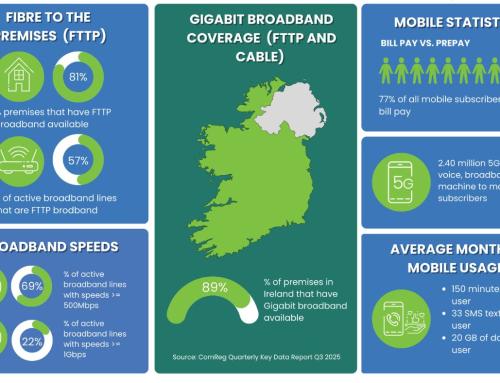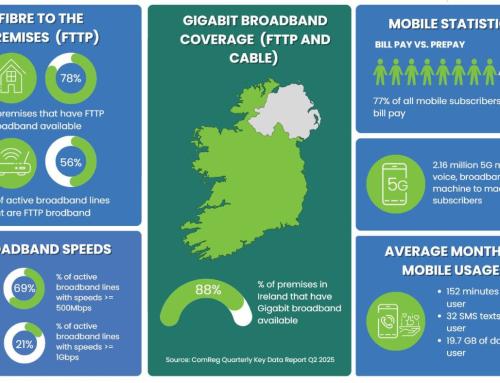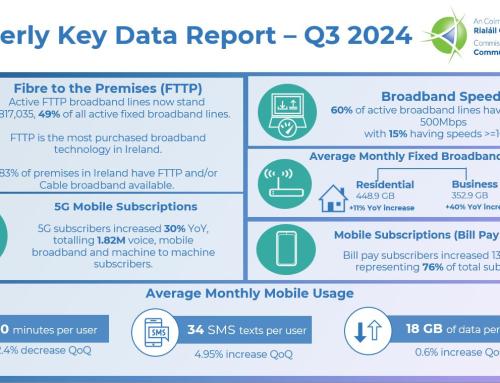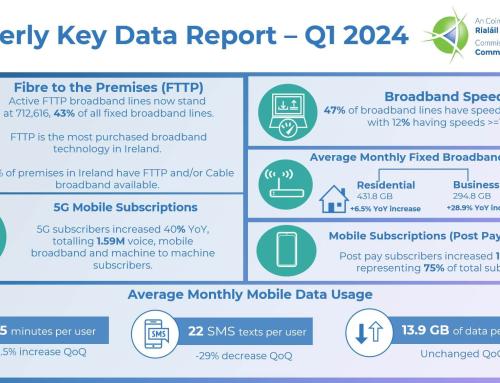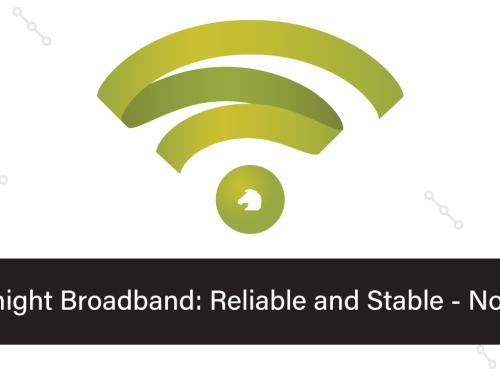A recent survey conducted by the Commission for Communications Regulation (ComReg) shows just how prevalent this trend has become all over the country as broadband expands to rural areas.
The Broadband Connectivity consumer survey, which was carried out between November 2022 and March 2023 by Behaviour and Attitudes, polled a representative sample of 2,993 adults from all over Ireland (not just the cities but the rural areas as well). The survey found that 44% of respondents now work from home online at least one day a week, with a third of respondents working from home online at least three days a week.
Interestingly, the survey found that working from home online is most common among people in densely populated areas and with access to higher broadband speeds. This highlights the need for continued investment in broadband infrastructure to ensure that all parts of Ireland have access to high-speed internet, which has become increasingly important for both economic and social reasons.
Did you know that you can get Broadband directly from Blacknight? Check your Eircode here.
The survey also found that broadband is seen as an essential service by 78% of respondents, with 85% of households having a fixed-line broadband connection at home. However, households in rural areas or with older residents are slightly less likely than average to have a connection.
Garrett Blaney, ComReg Commissioner, commented on the survey’s findings, saying that “with almost half of adults working online at least a day a week, it is clear that broadband services are essential to our economic and social life. Services provided over broadband are having a transformative effect on education, entertainment, retailing, and so many other areas.”
Other interesting findings from the survey include the fact that households with a fixed broadband service report having an average of 4.2 devices connected to the internet via their home broadband connection, with younger and urban households tending to have more devices. Additionally, while most respondents are satisfied with their broadband service, households in less densely populated areas are less likely to be satisfied.
It’s worth noting that 15% of respondents do not have a fixed broadband connection at all. Most of these people report that they are not interested in fixed broadband, don’t need it at home, or use a smartphone instead.
Overall, the survey provides a useful picture of how residential broadband use in Ireland is developing as coverage of high-speed broadband networks continues to expand across the country, and remote working becomes more common. The findings of this survey underscore the critical importance of broadband infrastructure to support a modern, connected society in Ireland.
You can read the entire report along with the methods of the survey here.

